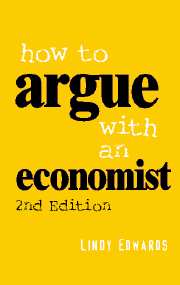Book contents
- Frontmatter
- Contents
- Acknowledgements
- Preface to the Second Edition
- Part I A Historical Juncture
- Part II Getting a Handle on Economics
- Part III Revealing Economic Rationalism's Worldview
- 6 ‘Punters’ versus ‘economic rationalists’
- 7 Contrasting views of human nature
- 8 Contrasting views of how society works
- 9 Constrasting views of the ideal society
- 10 Economic policy and culture
- Part IV Arguing with an Economic Rationalist
- Part V The Future
- Bibliography
- Index
8 - Contrasting views of how society works
Published online by Cambridge University Press: 14 October 2009
- Frontmatter
- Contents
- Acknowledgements
- Preface to the Second Edition
- Part I A Historical Juncture
- Part II Getting a Handle on Economics
- Part III Revealing Economic Rationalism's Worldview
- 6 ‘Punters’ versus ‘economic rationalists’
- 7 Contrasting views of human nature
- 8 Contrasting views of how society works
- 9 Constrasting views of the ideal society
- 10 Economic policy and culture
- Part IV Arguing with an Economic Rationalist
- Part V The Future
- Bibliography
- Index
Summary
‘God is dead’, the great German philosopher Nietzsche declared at the end of the 19th century, sparking one of the great philosophical debates of the 20th century. He argued that we have to accept that human beings are alone in the world. We have to create the meaning and purpose in our own lives. And we are solely responsible for how our lives go. What has this got to do with economics, you ask? You might be surprised to find you have a position on one of the great debates of last century. You might be even more surprised that this debate creates a rift between economic rationalists and the wider community. The debate strikes at the core of our most fundamental ideas about how the world works.
The economic rationalists' view
Economic rationalism's view of human nature paints a picture of 19 million individuals trotting about Australia greedily chasing their own self-interest. They ruthlessly pursue the almighty dollar with little interaction or consideration of others. But this looks like chaos. How is it tamed into a cohesive society? How can economists model this chaos and say that ‘society works like this’ generation after generation? The answer, they argue, lies in the underlying logic of the universe.
In the economic rationalist view, natural laws guide the market to harmony. The idea comes from the 18th century Enlightenment scientists' picture of the natural world. They believed that the natural world was a great machine designed by God.
Information
- Type
- Chapter
- Information
- How to Argue with an EconomistReopening Political Debate in Australia, pp. 64 - 75Publisher: Cambridge University PressPrint publication year: 2007
